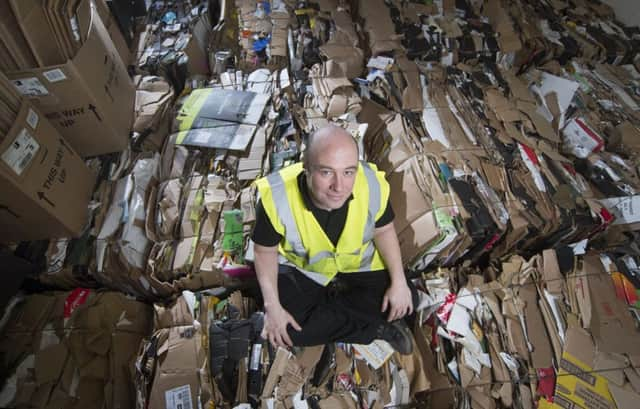Charity project which helps prisoners find work aims to expand


Eleven inmates at HMP Low Moss in Bishopbriggs received training from Shaw Trust Scotland, an employment and skills charity, before the completion of their sentences this year.
Six of the participants are now in employment while the remaining five have secured jobs and will begin work when released.
Advertisement
Hide AdAdvertisement
Hide AdThe Shaw Trust offers training to help disadvantaged or disabled to find work but this was the first of its programmes directly aimed at prisoners.
The charity was founded by volunteers in 1982 in the Wiltshire village of Shaw and now works across the UK.
It manages the Department for Work and Pensions’ national voluntary specialist disability employment programme – Work Choice – across three areas, including centres in Edinburgh, Falkirk and Glasgow.
“Offenders are less likely to commit crime after release if they are given the tools to change their lives for the better and can see a clear route into employment,” said Ashley McCloy, Shaw Trust operations manager in Scotland.
“The annual cost of keeping someone in prison in Scotland is approximately £34,000 and many are released without good job prospects, housing, or strong support networks, resulting in high levels of re-offending.
“Our prison employment scheme challenges conventional wisdom on rehabilitation by adopting a person-centred approach to offenders, focusing on individual needs and requirements.
“By providing offenders with this tailored support, prior to leaving prison, we help combat confidence issues along with other behavioural challenges posing challenges to those looking to settle into a normal routine.”
The trust is now hoping that its training programme will be extended to other prisoners in HMP Low Moss and eventually across the 14 other jails in Scotland.
Advertisement
Hide AdAdvertisement
Hide AdThe nation’s prison population has grown by about a third since the start of the new millennium, from 5803 in 2000/01 to 7878 today.
Prison populations in the Nordic countries are around 50-30 per cent smaller, according to figures by the Howard League for Penal Reform.
HMP Low Moss is one of the country’s most modern jails, having reopened in 2012 with a capacity of 700 after being completely rebuilt. The site in East Dunbartonshire was once home to an RAF barrage balloon depot.
The prison’s governor, David Abernethy, said he hoped to build on the success of the Shaw Trust pilot project.
“When someone is leaving prison very often their life has been turned completely upside down and the things the rest of us take for granted, like a safe place to live, the support of friends and family and the capacity to live independently, are not in place,” he said.
“In Low Moss we work very hard to help prisoners to address these areas and it is only through the partnership we have with the Shaw Trust and employers that we have had the successes that we have had.
“We believe that what we are doing here will not only help the prisoners who directly benefit but also the communities to which they are returning.”
Advertisement
Hide AdAdvertisement
Hide AdKevin, 38, from Glasgow, was one of the Low Moss prisoners who took the opportunity to take part in the programme.
During his weekly appointments he received computer training and took part in mock interviews with employers, which resulted in a job offer upon release.
Kevin now works two days per week for Cumbernauld recycling firm Cauda Limited helping process bulk cardboard to be reused in various industries.
He said: “There’s not a huge amount of support for people immediately after they’ve left prison but the training I received in my final months, as well as support since being released, has been really helpful.
“They’ve put me on track to complete a construction health and safety qualification which is a big advantage when applying for jobs in the recycling industry and opens up a lot of doors.”
